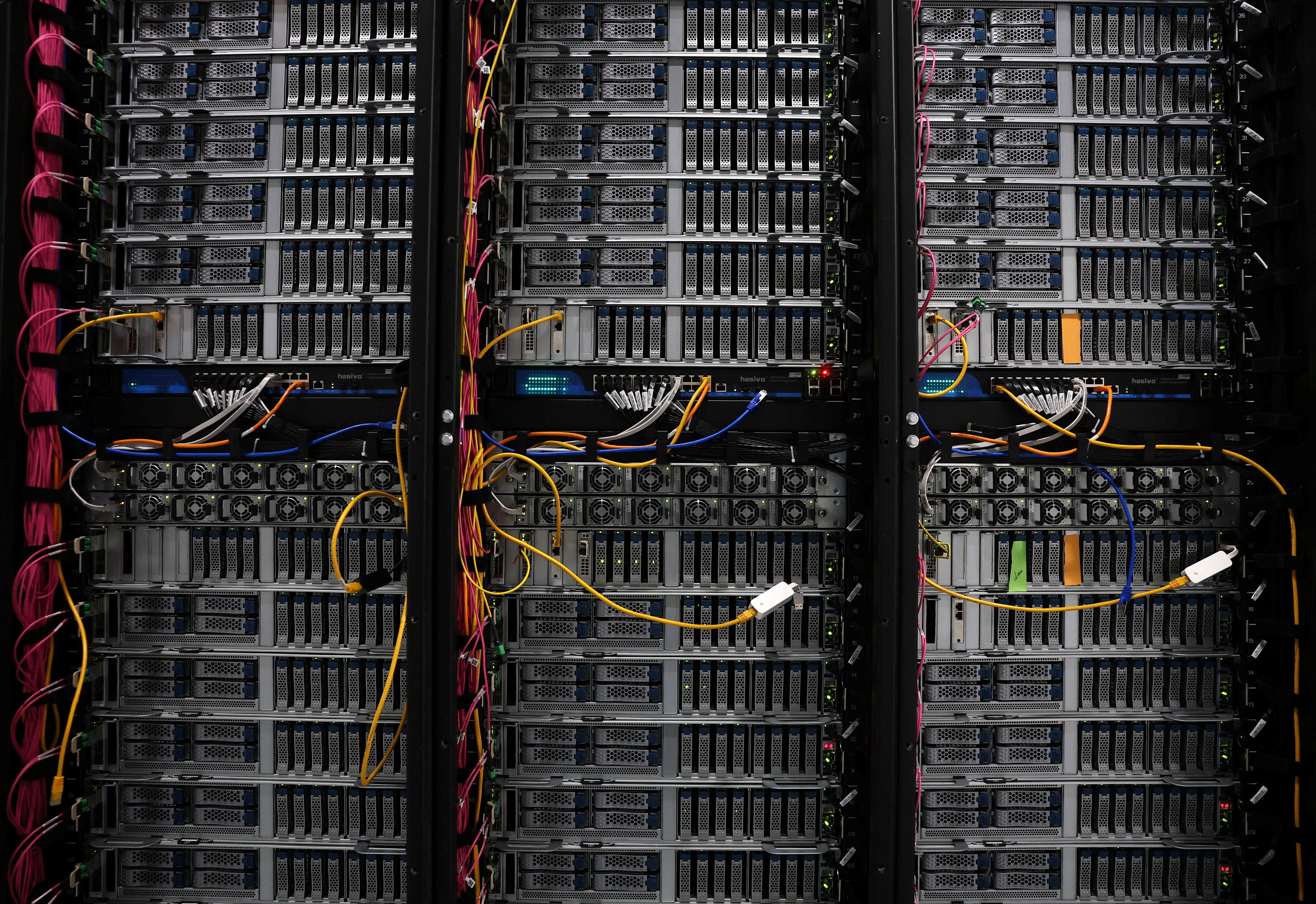Q&A: How the digital genome will change healthcare

Digital genome is one of 10 emerging technologies for 2015 highlighted by the World Economic Forum’s Meta-Council on Emerging Technologies.
Advances in technology have made sequencing an individual’s genome a reality – a development that will likely lead to more accurate medical diagnoses and more effective, individualized treatments.
To understand how the digital genome will change the future of healthcare, we spoke to Michael Pellini, who is the CEO of Foundation Medicine, a molecular information company dedicated to a transformation in cancer care in which treatment decisions are informed by an understanding of the genomic changes that contribute to each patient’s unique cancer. We asked him for his perspective on how the digital genome will change the future of healthcare.
Q: Two years ago your company, Foundation Medicine, was named a World Economic Forum Technology Pioneer for its work on personalized cancer diagnosis and treatment. How has the field changed since then?
Our approach has continued to advance, as has the clinical adoption of our tests. As an example, our molecular test for solid tumours, FoundationOne®, now assesses more than 300 individual cancer genes, each linked to a potentially more effective treatment. Additionally, we’ve launched a new test for cancers of the blood and sarcomas, called FoundationOne® Heme, which evaluates more than 100 additional genes implicated in these types of cancers. When we were first named a Tech Pioneer in 2013, our tests had been used on tumour samples from fewer than 2,000 patients, and now, they have been used on more than 35,000 patients.
More importantly, this approach to diagnosing and treating cancer – comprehensive genomic profiling, or CGP – has become more mainstream as the oncology community recognizes its potential to improve patient outcomes and drive the development of targeted therapies. Oncology is usually a relatively slow-moving field, so to see such rapid adoption of FoundationOne® is remarkable.
Q: What is driving the pace of change?
Simply put, the accumulation of data. The more we know, the better we become at matching individual cancers to targeted, effective treatments – and this realization is feeding a shift in the mindset of physicians as well as biopharmaceutical companies, in terms of how they approach therapeutic development and clinical trials.
It is also changing the way physicians think about approaching the diagnosis and treatment of patients. Traditionally, we would categorize a cancer according to the body part in which it is found, and the stage of its progression. As we discover more about the genomic drivers of cancer and the varied combinations of genomic alterations within each tumour, we start to see the limitations of this tissue-based approach – it would be an exaggeration to say that no two cancers are the same, but those that look identical are becoming fewer and further between.
So, if you’re an oncologist, you increasingly appreciate that the next patient who walks into your office is quite likely to have a cancer with specific genomic alterations that you’re not necessarily experienced in. That points to the value of having structures in place through which physicians can share information with their peers and tap into their respective experiences.
Q: The value of sharing personal genomic data points to privacy concerns. How much of an issue is this, in your experience?
Broadly, we believe that every patient is entitled to privacy, and it’s important that this remains in the forefront of our thinking as genomic information becomes increasingly integrated into the healthcare landscape. Certainly in the case of cancer, time is not their friend, and privacy is typically a lesser concern compared to finding a potentially effective treatment. We also find that most patients are highly motivated by a desire to help others and to leave a legacy once they understand that their data could help oncologists make treatment decisions for people with similar cancers and contribute to research to find more effective treatments.
I don’t want to minimize the issues around privacy of digital genome information. There are real concerns about what the implications might be if your employer or insurance company gets to know what’s in your genome. It’s interesting to observe that people talked much more about “genetic” privacy as a potential gating item 10-15 years ago than they do now. Today, I see more of a sense of optimism that we will be able to find workable solutions.
Q: Are there other gating items that might prevent digital genome technology from fulfilling its potential to revolutionize healthcare?
Outside of the privacy issue, we need to focus on two areas – the regulatory side and the payer (insurance) side. In my experience, the regulatory side is one where, as with privacy, there is a good deal of optimism. Certainly with the United States Food and Drug Administration, the regulator with which we have the closest contacts, we see a willingness to work with companies to understand how to adapt guidelines to make sure we can take advantage of the advances and innovation that are being brought forth by this new approach. And, as we think about reimbursement for comprehensive genomic profiling, we are optimistic that insurers will embrace our rapid advances.
Q: Looking beyond cancer, where do you see the biggest potential?
A number of efforts are underway in other areas, although mostly at earlier stages than in oncology. One area where the digital genome is already having an impact is in what are referred to as inborn errors of metabolism, which are relatively rare paediatric disorders. There is also much potential for treating inflammatory disorders, autoimmune disorders and, in the longer-term, infectious disease.
It’s hard to say exactly which areas will see the most progress once we look more than a few years ahead, as we’re still learning, but the potential is immense for any disease that is driven by any kind of genetic component. It’s easy to imagine that, in years to come, we will all routinely have our genomes sequenced and carry the information on our smartphones, so we can access it whenever we need it, whether it’s for wellness or illness.
Author: Michael Pellini, CEO of Foundation Medicine
Image: Blood samples are processed at Biobank, near Manchester, northern England, in this March 18, 2010 file picture. REUTERS/Phil Noble
Don't miss any update on this topic
Create a free account and access your personalized content collection with our latest publications and analyses.
License and Republishing
World Economic Forum articles may be republished in accordance with the Creative Commons Attribution-NonCommercial-NoDerivatives 4.0 International Public License, and in accordance with our Terms of Use.
The views expressed in this article are those of the author alone and not the World Economic Forum.
Stay up to date:
The Digital Economy
Related topics:
Forum Stories newsletter
Bringing you weekly curated insights and analysis on the global issues that matter.






